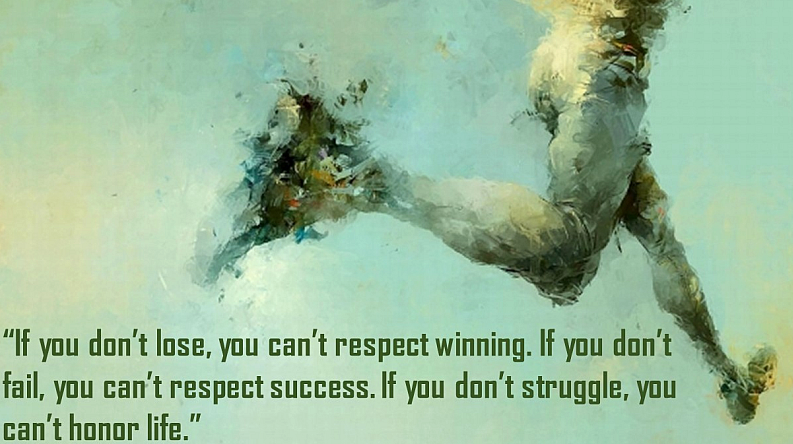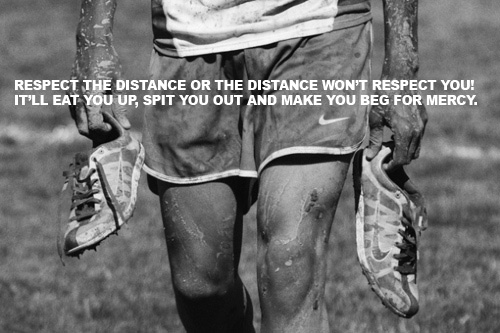|
It’s the least favorite three-letter word in the ultrarunning lexicon. The cursed, the dreaded — DNF (Did Not Finish). I’ve been fortunate to have had no firsthand experience with DNF to this point in my race career. But that only makes the choice (mindset? outcome?) more fascinating to me. So, in order to understand DNF and the reasons that lead up to it, I spoke with a number of seasoned runners who have on different occasions been at the crossroads of to finish or not to finish. Fact is, as ultrarunners, we push ourselves through a lot of pain and suffering during races. Sometimes that push gets us through the finish, and sometimes it doesn’t. Why is that? Why is it that at certain times we can maintain the mental and physical toughness to cross that goal line while at other times DNF becomes us? Prepare or Perish I think most ultrarunners would agree with me that the top reason for DNF is lack of preparation; the failure to be ready for the intensity of the race you are about to undertake. This is often tied to underestimating the course and the distance. One of the most commonly heard phrases in distance running is, “Respect the distance, or the distance won’t respect you! It’ll eat you up, spit you out and make you beg for mercy.” In some cases the lack of preparation comes from inexperience, including not eating and drinking right, going out to fast, or over-training and not giving your body enough taper time to reset. Stacking races too close to each other and not incorporating enough recovery time can also impact performance.
This dovetails with the unpredictable nature of ultrarunning. How much taper/recovery time is enough? That depends on you and your body. Other circumstances resulting in a decision to DNF happen because, well, we’re all human. Muscle cramps, blisters, dehydration, vomiting, getting lost and missing a cut-off. These things happen. If you have a broken bone or are experiencing symptoms of the three Hs (hyponatremia, hypothermia, or hypoxia), you have to make rational decisions and live to run another day. This is when DNF becomes imperative (Did Nothing Foolish). Sometimes DNFs are completely out of our control; Mother Nature can throw a curve ball at you, and extreme weather conditions can tank your race. Mind Games Ultrarunning is a sport where we push ourselves way past our physical capabilities, and this constant stress can weigh heavily on our mind and spirit. Once those turn traitor, the body follows. As ultrarunners, we must be physically strong but mentally stronger. I find that in order to successfully finish a big race, it is important to make reasonable goals and be willing to readjust those goals as the run progresses. Shooting for a sub-24-hour finish for a 100-mile race is a growing fad, and this is a good and aggressive goal to shoot for, but finishing should always be priority number one. I think a lot of people DNF because they realize their primary goal is unachievable and therefore feel it’s not worth running anymore. A runner who appears to be in decent physical condition can resign to a DNF due to lack of motivation to continue. No amount of goodwill or outside assistance will get you to the finish line once you have fallen into that mental slump, and it takes a lot to pull out of it. But a truly driven ultrarunner will persevere to finish a race even if he/she is dead last. Most runners I talked to told me that DNFing when their body could have gone on but mentally they had shut down took a toll that lasted longer than most physical injuries. Still, as much as a DNF was a hard blow to their psyche, they had grown from it. They learned to manage their mental lows and push through their perceived limits. Like most things, the first is the worst — but you are not alone. DNF happens to everyone. It is best dealt with when you don’t dwell on the past but use the memory to fuel your inner fire. Put the bad race behind, get back on the horse and keep on hoofing it! Author: Shalini Kovach is the lead organizer of Terrain Trail Runners. 10/10/2019 07:08:51 am
In sports, it's either you win or you lose. Both things require preparation. If you are unlucky and you lost in the game, that teaches you several lessons in life and will keep you grounded. It is not just about winning because there will be days that you will reach the rock bottom. What's important is you know how to bounce back so that if the perfect timing comes for you, you would know how to react on winning. Both phases are going to teach you a lot of lessons in life! Comments are closed.
|
AuthorsOur blog writers are members of Terrain Trail Runners, local athletes just like you, who want to share their love and knowledge of the sport. Archives
March 2023
Categories
All
|



 RSS Feed
RSS Feed